Researchers
[Español]
Allison Gardner

Allison Gardner is a medical entomologist and her research focuses on the ecology of infectious diseases of humans and wildlife that are transmitted by arthropod vectors. She uses lab and field studies in conjunction with geographic, quantitative, and molecular tools to address questions related to 1) understanding the basic biology of arthropod vectors and the socio-environmental conditions that enhance disease transmission, 2) developing effective, sustainable vector management strategies that are grounded in ecological theory, and 3) predicting future hotspots of transmission to facilitate targeted public health prevention and intervention efforts. Her current projects include understanding the interactions between risk of exposure to vector-borne disease and tourism at local and international spatial scales, studying the impacts of land use and climate change on the invasion of the blacklegged tick and Lyme disease in Maine, and investigating the ecology and management of a mosquito vector for Zika virus in the Bahamas.
Brandon Lieberthal

Brandon Lieberthal is a Research Associate in the School of Biology and Ecology and a Teacher at John Bapst Memorial High School (PhD in Theoretical and Applied Mechanics, University of Illinois at Urbana-Champaign). His research combines epidemiology and network science to investigate the impacts of human movement patterns on the spread of infectious viruses. He is particularly interested in how environmental habitats for mosquito vector species and human behavior regarding travel and tourism interact to influence the severity and trajectory of disease epidemics in the Caribbean and Latin America.
Sandra De Urioste-Stone

Sandra De Urioste-Stone is an associate professor of nature-based tourism at the University of Maine. Her research aims at enhancing resilience and sustainable rural livelihoods of natural resource dependent communities, engaging non-academic partners in the research process, and training the next generation of applied researchers. As an applied social scientist, De Urioste-Stone’s research seeks to respond to emerging socio-ecological problems in the United States, Latin America, and Asia. Given the growing complexity of problems resulting from uncertainties and the effects of global environmental and social change, she works with researchers from both the social and biophysical sciences to develop research processes aiming to create effective and inclusive spaces for collaboration. Sample collaborative projects include the adaptive capacity of nature-based tourism destinations in Maine to climate change, the adaptive capacity of forest socio-ecological systems in Maine to the effects of global changes, community resilience in the face of emerging diseases and economic shocks, and community-based interventions for Chagas disease control in Guatemala.
Aiman Soliman
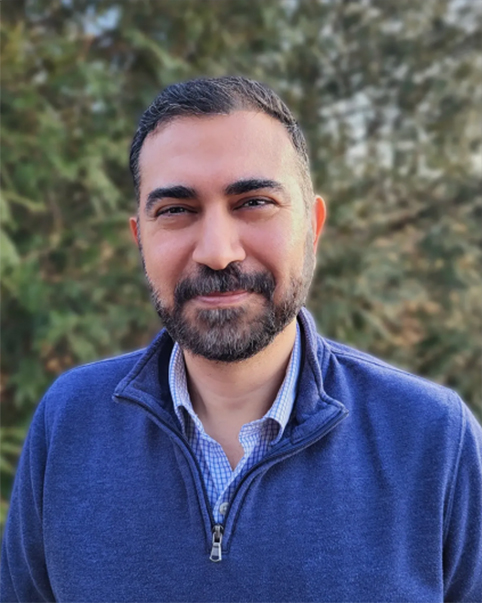
Aiman Soliman is a Research Assistant Professor and a Research Scientist at the National Center for Supercomputing Applications (NCSA), University of Illinois Urbana-Champaign. Aiman is trained as a spatial data scientist and specializes in applying quantitative and computational methods, spatial analysis, and machine learning to spatial information. His research examines the form and structure of urban fabric through the lens of big data. He focuses on studying feedback patterns between natural and urban systems and investigating connections between urban heterogeneity and a variety of outcomes, including public health. In his publications, he leverages data-driven approaches to analyze regional dynamics, such as the impact of collective human mobility patterns on the outbreak of diseases and the effects of climate change on urban settlements.
Shaowen Wang
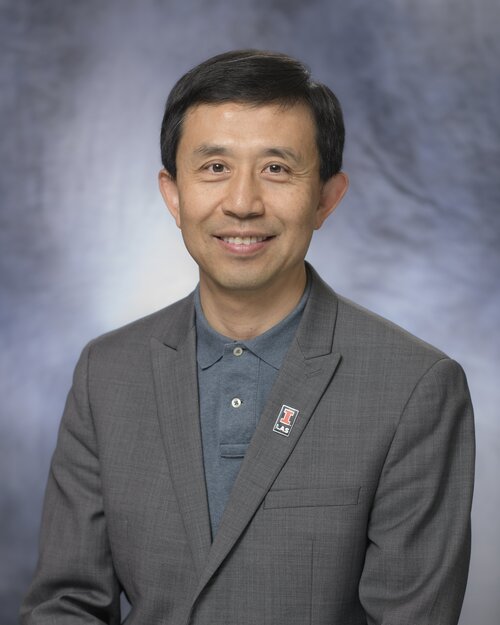
Shaowen Wang is Professor of the Department of Geography and Geographic Information Science; and Affiliate Professor of the Department of Computer Science, Department of Urban and Regional Planning, and the School of Information Sciences at the University of Illinois Urbana-Champaign (UIUC). He currently serves as Associate Dean for Life and Physical Sciences of the College of Liberal Arts and Sciences and is a Senior Faculty Fellow with the Office of the Vice Chancellor for Research and Innovation at UIUC. He has served as Founding Director of the CyberGIS Center for Advanced Digital and Spatial Studies at UIUC since 2013. He previously served as Head of the Department of Geography and Geographic Information Science from 2017 to 2023 and as Associate Director of the National Center for Supercomputing Applications for CyberGIS from 2010 to 2017. His research focuses on advancing cyberGIS and geospatial data science for scalable solutions to complex geospatial problems and sustainability challenges.
Brian Allan

Brian Allan is Associate Director for Academic Affairs at the School of Integrative Biology and Professor of Entomology at the University of Illinois Urbana-Champaign. He is broadly interested in the ecology of infectious diseases, particularly diseases transmitted via the bite of an infected arthropod (e.g., ticks, mosquitoes). Much of Brian’s research focuses upon the consequences of human-mediated global change, such as climate change and human land-use, on the risk of exposure to parasites and pathogens carried by wildlife. While Brian works on these questions in a wide variety of wildlife communities and disease systems, he is especially interested in understanding the effects of landscape change on the emergence and transmission of tick-borne diseases. He uses a broad array of tools in approaching these questions, including molecular technologies, remote sensing applications, and theoretical modeling.
Andrew James Mackay
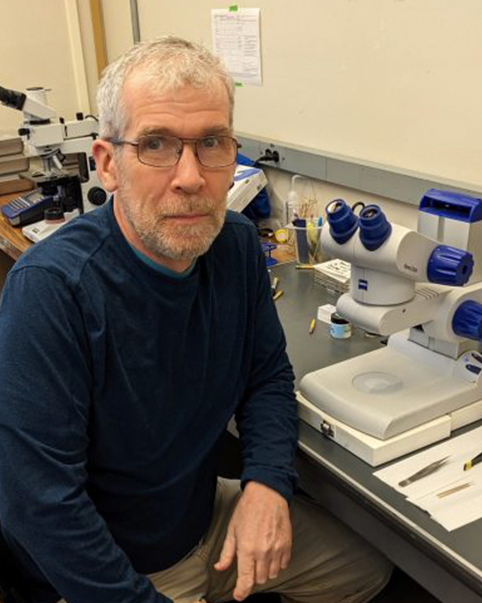
Andrew Mackay is an Associate Scientist with the Illinois Natural History Survey at the University of Illinois Urbana-Champaign. His broad interests include the ecology and behavior of mosquito vectors
and impacts of environmental change on mosquito-borne disease risk. Andrew is currently managing field surveillance efforts in a multiyear project investigating mosquito communities and mosquito-borne
arboviruses of medical and veterinary concern across the State of Illinois.
Elizabeth Pellecer Rivera

Elizabeth Pellecer Rivera is a Ph.D. student in Ecology and Environmental Sciences at the University of Maine. Her research aims to better understand the role of emerging mosquito-borne diseases (Zika virus and chikungunya) in tourism planning, focusing on Guatemala as a case study. By analyzing newsprint media messaging, travelers’ risk perceptions, and the experiences of stakeholders from the tourism industry, she hopes that her findings will help inform tourism and public health strategies to deal with future epidemic-induced crises. She holds a B.A. degree in Ecotourism from Universidad del Valle de Guatemala and an M.S. in International Development Studies from Palacký University Olomouc. Her past working experiences involved applied social research, health-related projects, participatory processes, community-based tourism, interdisciplinary teams, and communication.
Anup K C
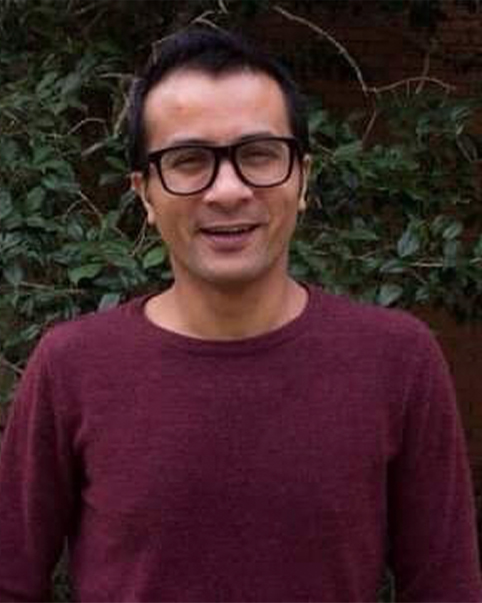
Anup K C is a postdoctoral research associate at the University of Maine. His main research aims are enhancing the sustainability of parks, tourism, and recreation projects and providing optimum benefits to local stakeholders. He has educational training, teaching, and research experience in parks, tourism, and recreation issues from environmental, economic, and socio-behavioral lenses. K C’s past research projects were related to COVID-19, community-based tourism and conservation, ecotourism and sustainability, climate change, and other emerging environmental issues in the US and Nepal. Before joining UMaine, he worked as an Assistant Professor at Tribhuvan University, Nepal and collaborated on research projects with professors of various universities inside the United States.
Julio Rodríguez Stimson
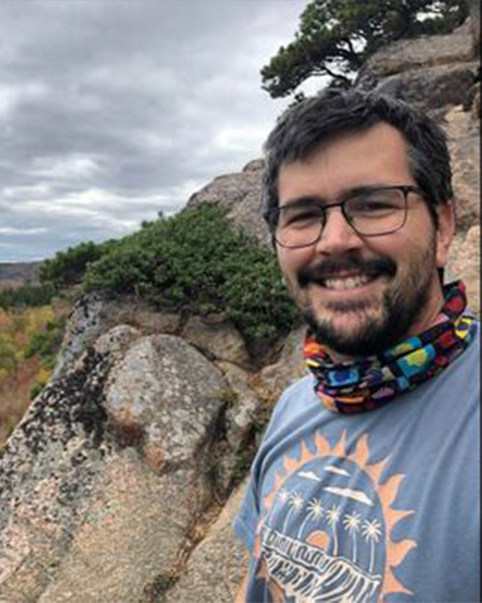
Julio Rodríguez Stimson is a Postdoctoral Research Associate at the School of Forest Resources, actively involved in teaching, mentoring graduate students, and communicating vital research findings from the NSF-funded ‘Coupled Dynamics of Tourism and Mosquito-Borne Disease Transmission in the Americas’ project. As a recent PhD graduate from the University of Oxford, his research involved a year of ethnographic exploration into the compounded risks faced by Galapagos Islands farmers, including the challenges posed by Covid-19, climate change, and agricultural pests. His Master’s thesis, conducted while living with the Cofán people in the Ecuadorian Amazon, delved into the complex issues of political abandonment, ambivalent attitudes towards oil exploitation, and the struggle for an idealized tranquil life in the forest amidst external economic pressures. Additionally, he has experience as a Communications Officer for the Charles Darwin Foundation, where he played a crucial role in disseminating the intricate scientific work conducted by researchers on the Galapagos Islands. He has a background in filmmaking, having produced over fifty 30-minute videos aboard National Geographic vessels in Antarctica, Svalbard, Alaska, and Iceland.
